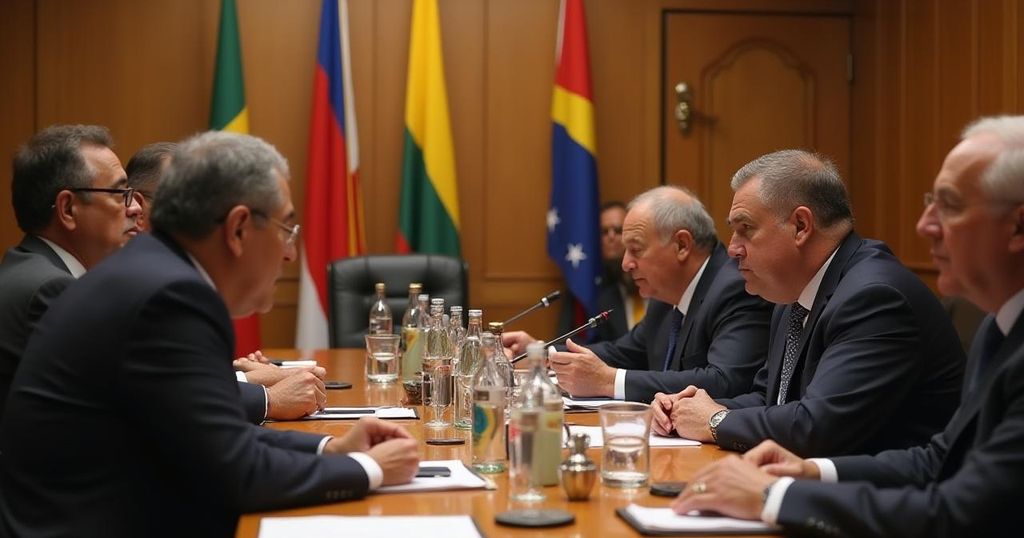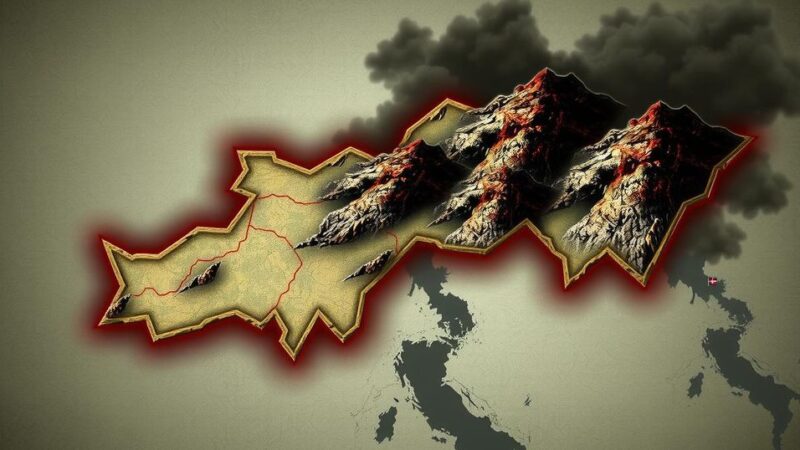On October 14-15, 2024, Namibia and South Africa’s Foreign Ministers expressed their support for Cuba and Venezuela, condemning the U.S. blockade against Cuba and calling for the lifting of sanctions affecting Zimbabwe. They also condemned Israeli bombings in Lebanon and discussed the situation in Western Sahara, welcoming a ruling on self-determination rights by the CJEU.
Recently, a ministerial gathering took place in Swakopmund, Namibia, on October 14 and 15, where the Foreign Ministers of Namibia, Peya Mushelenga, and South Africa, Ronald Ozzy Lamola, jointly reaffirmed their nations’ support for Cuba and Venezuela. This support arises in light of the economic challenges these Latin American countries are facing, exacerbated by unilateral sanctions. The ministers highlighted the detrimental economic, financial, and commercial blockade imposed on Cuba, calling for an immediate cessation of this policy that the United States has enforced for over six decades. In addition to expressing solidarity with Cuba and Venezuela, the meeting condemned the recent Israeli airstrikes on Lebanon, denouncing them as significant contraventions of sovereignty and international humanitarian law. Both ministers urged the international community and the United Nations Security Council to uphold and reinforce international law in the face of such violations. Furthermore, Namibia and South Africa placed emphasis on the urgent requirement for the unconditional lifting of illegal sanctions targeting Zimbabwe, recognizing that these sanctions impede the socioeconomic development of not just Zimbabwe but the broader Southern African region. The discussions also encompassed the situation concerning Western Sahara, where the ministers welcomed the ruling of the Court of Justice of the European Union (CJEU) dated October 4, 2024. This ruling underscored a violation of the right to self-determination for the Sahrawi people by the European Commission.
This event underscores the ongoing geopolitical dynamics influencing Southern Africa’s foreign relations, particularly concerning the impacts of international sanctions on nations like Cuba and Venezuela. The history of sanctions against Cuba stems from U.S. policies aiming to isolate the Cuban government, which have generated significant economic challenges. Additionally, the broader implications of such sanctions on regional allies, including Zimbabwe, stress the interconnections among these nations, where economic stability is profoundly interconnected. The reference to the situation in Western Sahara illustrates the complexities of international law and self-determination rights, further delineating the current regional diplomatic landscape.
In conclusion, the ministerial meeting held in Namibia reflected a strong affirmation of solidarity between Southern African nations and Cuba and Venezuela, amidst calls for the cessation of longstanding sanctions. The condemnation of external military actions, alongside demands for the lifting of sanctions on Zimbabwe, showcases a united front advocating for international law and the rights of people to self-determination. This gathering emphasizes the importance of regional cooperation in addressing global economic and humanitarian challenges.
Original Source: www.plenglish.com






